Windows April 14, 2024
Windows 11 24H2 or Windows 12? What to Expect
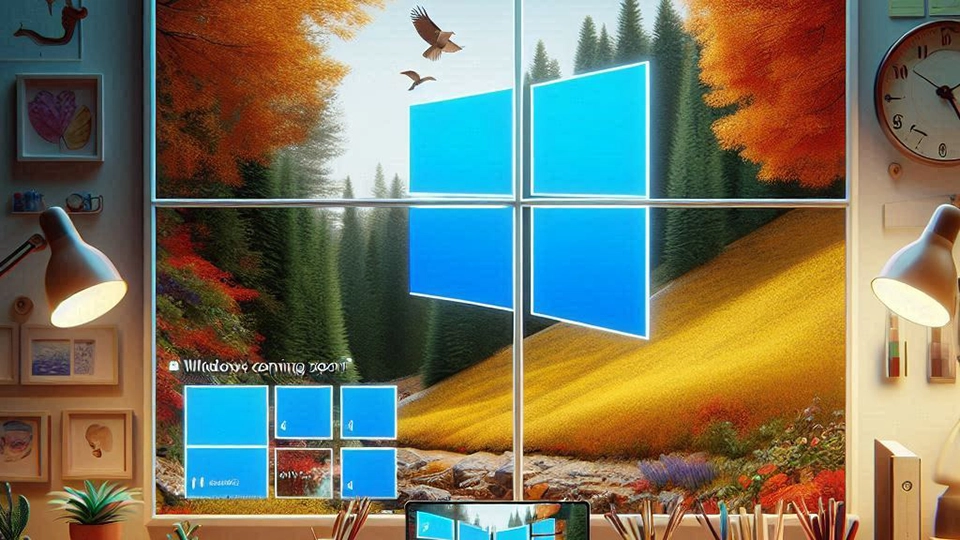
Windows 11, Microsoft's latest operating system, has been around for a few years now, receiving periodic feature updates known as "moments," as well as annual updates. However, speculation has been circulating about the possibility of a new Windows release following Windows 11.
Initial leaks from prominent sources like Intel and Qualcomm hinted at the existence of Windows 12, sparking rumors that Microsoft may be developing a successor to Windows 11, with a potential release slated for 2024.
Regardless of whether it's labeled as Windows 12 or Windows 11 24H2, one thing is clear: a significant update is on the horizon. Here's a glimpse into what we currently know about the upcoming changes.
Stay tuned as we delve deeper into the details and implications of this exciting development. Our team at userpulsehub.com is committed to providing you with the latest insights and updates on Windows operating systems to keep you informed and prepared for what's next in the world of technology.
Windows 12 naming and release date
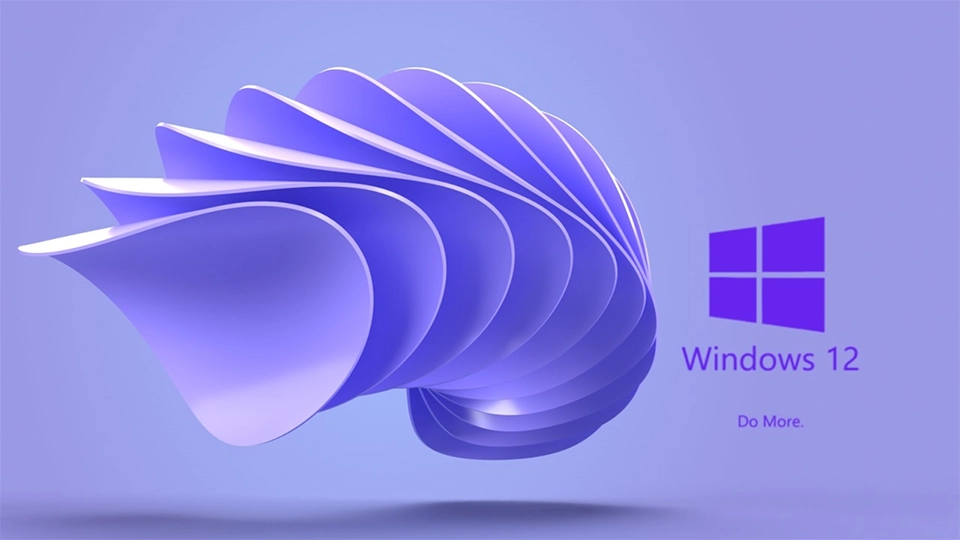
As anticipation grows for the next iteration of Microsoft's operating system, speculation surrounding Windows 12 continues to mount. Despite the absence of any official announcements from Microsoft regarding Windows 12, insights gleaned from industry insiders offer some intriguing details.
According to reports from reputable sources like Windows Central's Zac Bowden, Microsoft is unlikely to unveil Windows 12 this year. Instead, the tech giant is expected to maintain the Windows 11 branding and focus on delivering regular updates to enhance its functionality. Windows 12, if it materializes, is rumored to be internally referred to as "Hudson Valley."
While the official release date for Windows 12 remains shrouded in mystery, certain features purportedly associated with the new OS have already been undergoing testing. These features are anticipated to debut in Windows 11 24H2, set for release later this fall. In essence, the upcoming features in Windows 11 24H2 offer a glimpse into what might have been part of Windows 12.
Speculation regarding a potential announcement of Windows 12 has been fueled by Microsoft's upcoming Build developer conference, scheduled for May 21. Although details are scant, the event promises insights into the company's overarching "AI vision across hardware and software."
Recent developments within Microsoft, including the departure of Windows Chief Panos Panay, have prompted shifts in the company's strategy. With Windows 10 still commanding a substantial user base of 1.4 billion monthly active devices, Microsoft appears inclined to double down on refining and advancing Windows 11, which currently lags behind with approximately 400 million devices.
Stay tuned as we continue to monitor developments surrounding Windows 12 and its potential impact on the future of Microsoft's operating systems.
Compatibility
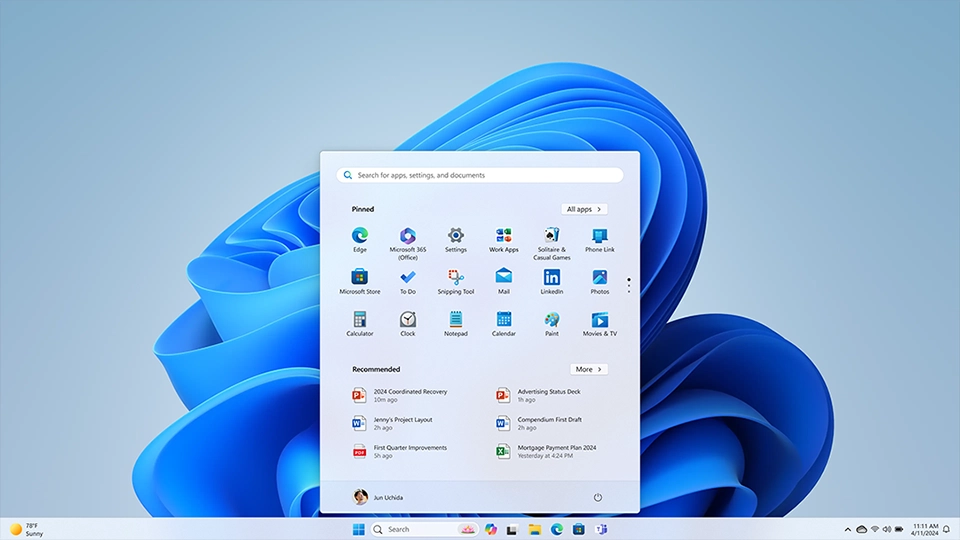
As the tech community eagerly awaits updates from Microsoft, the focus remains on the compatibility landscape for potential future releases, including Windows 12. While Windows 11 24H2 is on the horizon for this year, it's essential to consider the broader implications for compatibility in the realm of operating systems.
Windows 11's rollout initially sparked debate and scrutiny due to stringent hardware requirements, notably the necessity for a Trusted Platform Module (TPM) and specific CPU specifications. Microsoft justified these prerequisites as crucial steps toward bolstering security standards in the Windows ecosystem, aligning modern security protocols with a contemporary operating system framework.
Despite initial hesitations and inconveniences, such as the infamous TPM issue affecting PC gamers, Microsoft has made significant advancements since the inception of Windows 11. PC enthusiasts have gradually embraced the new platform, drawn by its enhanced security features and performance benefits.
Looking ahead to Windows 12, it's reasonable to expect Microsoft to uphold the robust security architecture established in Windows 11. However, there's hope for smoother transition processes, particularly concerning compatibility with custom-built PCs. Addressing concerns surrounding installation restrictions and persistent watermarks on Windows 11 systems could mitigate potential challenges associated with future OS upgrades.
As the technology landscape evolves, Microsoft's commitment to refining compatibility standards remains pivotal. Striking a balance between stringent security measures and user accessibility will be paramount in shaping the adoption journey for future Windows releases.
Stay tuned as we delve deeper into the evolving compatibility dynamics and potential enhancements awaiting Windows enthusiasts in the forthcoming iterations of Microsoft's operating systems.
Will it be a free upgrade?
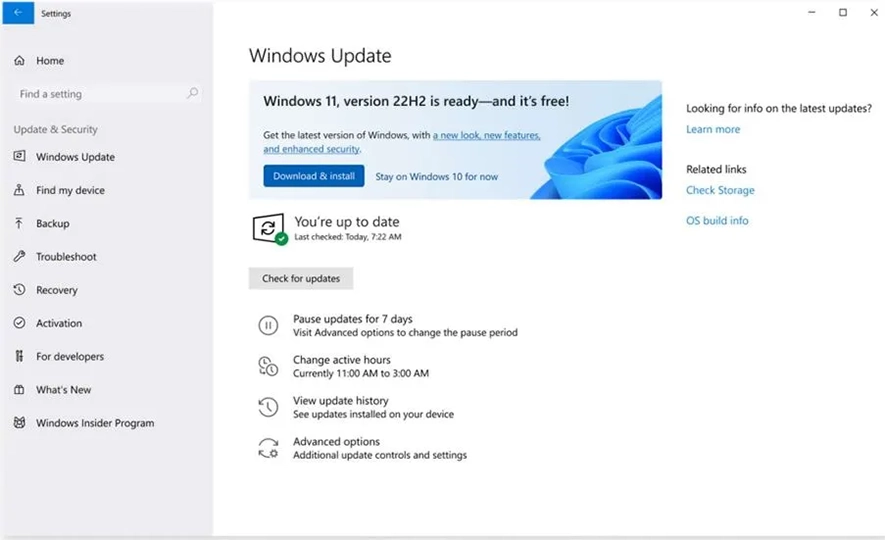
One of the burning questions surrounding the anticipated release of Windows 12 pertains to its upgrade policy. Historically, Microsoft has offered free upgrades to users of its previous operating systems, and Windows 12 is expected to follow suit.
For current Windows 11 users, the transition to Windows 12 should seamlessly continue the tradition of complimentary upgrades, mirroring the annual update cycles observed in recent years. Microsoft's commitment to providing free updates underscores its strategy of treating Windows as a service rather than a standalone product.
The accessibility of Windows upgrades extends beyond mere user convenience; it reflects Microsoft's evolving approach to software distribution and monetization. By offering free upgrades, Microsoft not only fosters user loyalty but also leverages data collection and advertising avenues embedded within the OS.
While debates surrounding privacy concerns persist, Microsoft's data-driven initiatives have facilitated a model where Windows updates remain accessible to licensed users without additional financial barriers. This contrasts with earlier iterations of Windows, where upgrade costs could amount to significant expenses for consumers.
As the digital landscape continues to evolve, Microsoft's commitment to providing accessible and user-friendly Windows updates reaffirms its dedication to delivering value-driven experiences to its global user base.
Stay tuned for further updates on Windows 12's upgrade policies and how they shape the future of Microsoft's operating system ecosystem.
Features
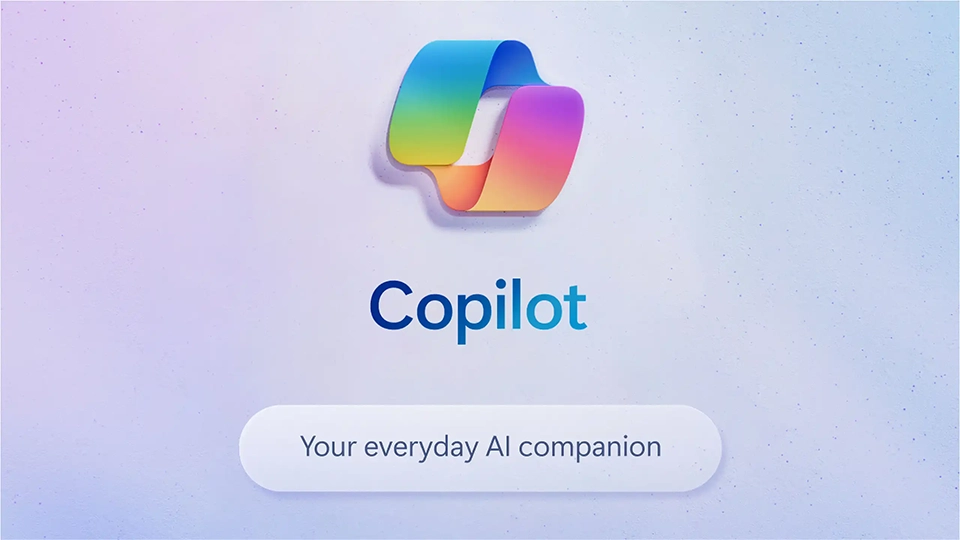
The technological landscape is abuzz with the potential of artificial intelligence (AI), and Microsoft is at the forefront of this revolution. With the imminent release of Windows 12, expectations are high for a significant integration of AI-driven functionalities designed to enhance productivity and user experience.
Anticipated hardware advancements, such as the inclusion of Neural Processing Units (NPU) in upcoming Surface PCs equipped with Intel Core Ultra and Snapdragon X Elite chips, signal Microsoft's strategic embrace of AI-powered computing. Windows 12 is poised to capitalize on these advancements, leveraging NPUs to optimize performance for a myriad of productivity tasks. Moreover, these advancements are expected to debut in the forthcoming Windows 11 24H2 update, offering users a glimpse into the AI-driven future of computing.
Among the standout features of Windows 12 is the anticipated evolution of Copilot, an AI-driven assistant designed to streamline user workflows. Rumors suggest that Copilot in Windows 11 24H2 will introduce an "AI Explorer" feature, empowering users to navigate their digital environments with unprecedented ease. Drawing parallels to the discontinued Timeline feature in Windows 10, AI Explorer promises to contextualize on-screen activities, offering users searchable insights and actionable moments tailored to their unique needs. Additionally, gaming enthusiasts can look forward to "Super Resolution," an AI-powered enhancement set to elevate graphics quality in gaming experiences on Windows 11.
Microsoft's substantial investment in OpenAI underscores its commitment to harnessing AI technologies across its product ecosystem. With Windows 12, the pervasive influence of AI is expected to permeate every facet of the operating system, heralding a new era of intelligent computing and immersive user experiences.
As anticipation builds for the release of Windows 12, users can expect an unparalleled fusion of cutting-edge AI technologies and innovative features that redefine the boundaries of productivity and performance.
Design

Windows 11 brought a much-needed face-lift to Microsoft’s OS. Rounded corners, a centered taskbar, and updated icons across the board make Windows 11 feel like a much more modern OS. Windows 12 could take this further whenever Microsoft is ready to push it out. The company shared a mock-up of what looks like a new version of Windows, with a floating and translucent taskbar. It’s unknown if this will come to Windows 12, but it sure does look nice.
But we still want to see deeper customization options. There are several tools that make Windows 11 look like Windows 10, and Microsoft could integrate those features into Windows 12 itself. Options for moving the taskbar to different sides of the screen, changing Start menu styles, and disabling system features like widgets would be appreciated.
Expectations
The rumors and expectations surrounding Windows 12 look quite promising. The innovations that Microsoft is developing for the next generation operating system seem to promise further enhancement of user experience. Particularly, the addition of AI-driven features and deeper customization options could make Windows 12 a significant update for Windows users.
However, the lack of an official announcement from Microsoft and its focus on the ongoing development of Windows 11 creates uncertainty about when Windows 12 will be released. Nevertheless, it might be best to keep track of Microsoft's progress in the development process and await the announcement of new features.
In conclusion, as Windows users, we should be ready for the innovations and improvements that come with future updates. We eagerly await to see when and with what features Windows 12 will arrive.
Share
Latest article
- HBO Pulls the Plug on ‘The Franchise’ After Just One Season
- OnePlus’s New Flagship Killer: The OnePlus 13R Revealed!
- OpenAI’s Latest Move: ChatGPT’s Web Search Engine Goes Live
- Life is Strange: Double Exposure Review – Max Caulfield’s Triumphant Return
- Astro Bot: The Game That Makes Owning a PS5 Worth It
Categories
- AI
- AR-VR Headsets
- Baby
- Cloud Storages
- Earbuds & Headphones
- Games
- Gaming Laptops
- Others
- GPUs
- Leaks
- Mobile
- Windows
Topics
Apple Apple Vision Apple Vision Pro Apps AR AR-VR Astro Bot Asus ROG audio baby monitors baby monitor comparison baby monitor reviews baby monitors Babysense MaxView review best baby monitor features best baby monitors Black Myth: Wukong Bluetooth Cache Reset ChatGPT Cloud Cloud Storage contact us Cookie Policy Cross-Platform Drive EA Entertainment External Display Face ID Family Share Fold 5 Fold 6 Foldable Phones Galaxy A35 Galaxy A55 Galaxy Z Fold Game Reviews Games Gaming Gaming Laptop Google Google Drive Google Mobile Phones Google One Google Pixel Google Pixel 9 GPU GPU Review HBO Headphones high-definition baby monitors Honor Honor Magic V2 iPhone Leaks Life is Strange Life is Strange: Double Exposure local video baby monitors long battery life baby monitors Microsoft Microsoft Windows Mobile Mobile Phones Mobile Reviews Multi Connection Multipoint Nanit Pro baby monitor NVIDIA NVIDIA RTX 4070 OnePlus OpenAI Optic ID Phones Privacy Policy Productivity Project Rene PS5 Games Registry Editor Release Date Reviews RPG Games Rumors Samsung Samsung Z Fold Sea Of Thieves SearchGPT secure baby monitors Storage Spaca Strategy Games Strategy RPG Summer Gaming Marathon Tech News The Sims 5 Top 10 Apps top baby monitors Troubleshooting TV Series Unicorn Overlord video baby monitors VR VR Headsets VTech baby monitors Wi-Fi baby monitors Windows Windows 10 Windows 11 Windows 11 24H2 Windows 12 Windows Guides Z Fold 5 Zephyrus G14Related Posts

User Pulse Hub

